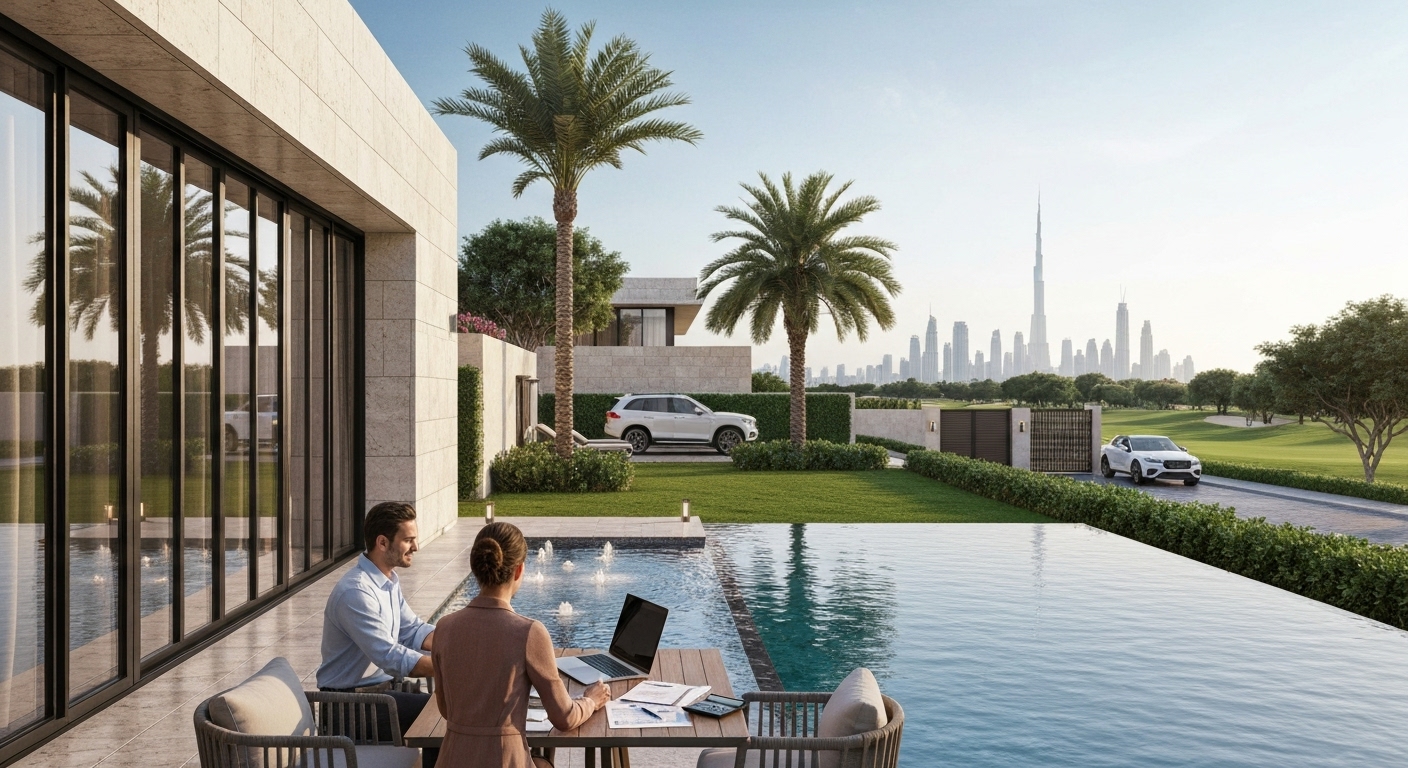If you are a British expat researching the annual property tax on a 3M AED villa in Dubai Hills, the answer is both simple and nuanced: Dubai does not levy an annual property tax as seen in the UK, yet there are recurring charges every villa owner must plan for. This article unpacks the true cost of villa ownership for expats, demystifies ongoing expenses, and addresses both Dubai and UK-side tax factors you cannot afford to overlook.
The True Cost of Ownership: Beyond the ‘No Annual Tax’ Myth in Dubai
One of Dubai’s most renowned advantages for investors is its zero annual property tax policy. Unlike the UK and many western markets, villa owners in Dubai Hills do not receive an annual municipal property tax bill. This provides direct and ongoing financial relief to expat investors and helps maximize net rental yields. Dubai is further distinguished by its 0% income tax on rental earnings, making it particularly enticing for British expats seeking to optimize returns. However, it’s crucial to see past the “no property tax” headline, as all villa owners will encounter several routine, mandatory fees that can add up each year.
Understanding the Dubai Hills Property Landscape for Expats
Dubai Hills is a master-planned, luxury community renowned for its green boulevards, prestigious schools, and easy access to Downtown Dubai via Al Khail Road. Villas here, including those in the coveted 3M AED price segment, deliver both lifestyle quality and strong total return potential. Over the past decade, prime Dubai freehold neighbourhoods have exhibited price appreciation upwards of 40%, making them a global benchmark for investor satisfaction.
Mandatory Annual Service Charges and Community Fees for a 3M AED Villa
While there is no annual government property tax, all villa owners in Dubai Hills must pay annual “service charges” or “community fees.” These charges are set by the property management and Dubai Land Department, and cover the cost of maintaining communal spaces, landscaping, security, lighting, and shared infrastructure. For a 3M AED villa in Dubai Hills, annual service charges typically range from AED 4 to AED 8 per square foot, depending on the exact location, amenities, and the year’s maintenance plan. With an average villa size of around 3,000–4,000 square feet, owners can expect annual fees in the region of AED 12,000–32,000. These fees are strictly regulated, reviewed annually, and can increase based on inflation or community upgrades.
Dubai Municipality Housing Fees: What British Expats Need to Know
Dubai Municipality levies a “housing fee” applicable to both owners and tenants. This fee is calculated as 5% of the property’s annual rental value (not sales price) and is paid via the monthly DEWA utility bill. For a villa in Dubai Hills with an estimated annual rental of AED 200,000, the yearly housing fee would be AED 10,000, divided into monthly payments. This is the closest equivalent to a property tax but is generally lower in proportion compared to those in the UK or Europe.
The UK Tax Implications for British Expats Owning Property in Dubai
While Dubai’s direct property taxes are virtually non-existent, British citizens must consider potential UK tax implications. For UK residents and “deemed domiciled” individuals, worldwide rental income—including that from Dubai villas—must be declared on their self-assessment tax returns. Additionally, capital gains tax (CGT) could apply if the property appreciates and is sold while the owner is still classed as a UK tax resident. It is therefore important to structure ownership and residence carefully to optimize any UK-side tax liabilities.
Hidden Costs and Overlooked Fees: A Comprehensive Breakdown for Investors
Beyond annual service charges and housing fees, other recurring costs in Dubai Hills include:
- Insurance premiums for villa structures and contents.
- Regular maintenance and repairs are not covered by community charges.
- Potential sinking fund contributions for major upgrades in some master-planned communities.
- Utility charges (water, electricity, cooling).
While these fees are transparent and typically lower than annual tax rates in the UK, ignoring them can impact annual net yields and overall ROI.
Maximizing Your Investment: Tax-Efficient Property Ownership Strategies in Dubai
British expats can enhance tax efficiency by:
- Opting for long-term Golden Visa options offered through qualifying property purchases of AED 2 million or more.
- Holding property in joint or company ownership structures (where permitted), which could provide inheritance and asset protection advantages.
- Seeking advice from qualified UK and UAE tax advisors to minimize double-tax exposure and maximize legitimate deductions.
In summary, while there is no annual property tax on a 3M AED villa in Dubai Hills for a British expat, owners must budget for annual service charges and housing fees, as well as be mindful of UK-side reporting requirements. For clear strategies on buying and managing UAE property, contact Danube Properties to learn more.




